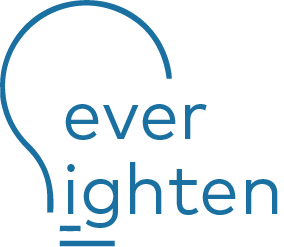Unleash the Power of Plush: Building a Successful Non-Profit Merch Store with Custom Plush Toys
| Mar, 06 , 24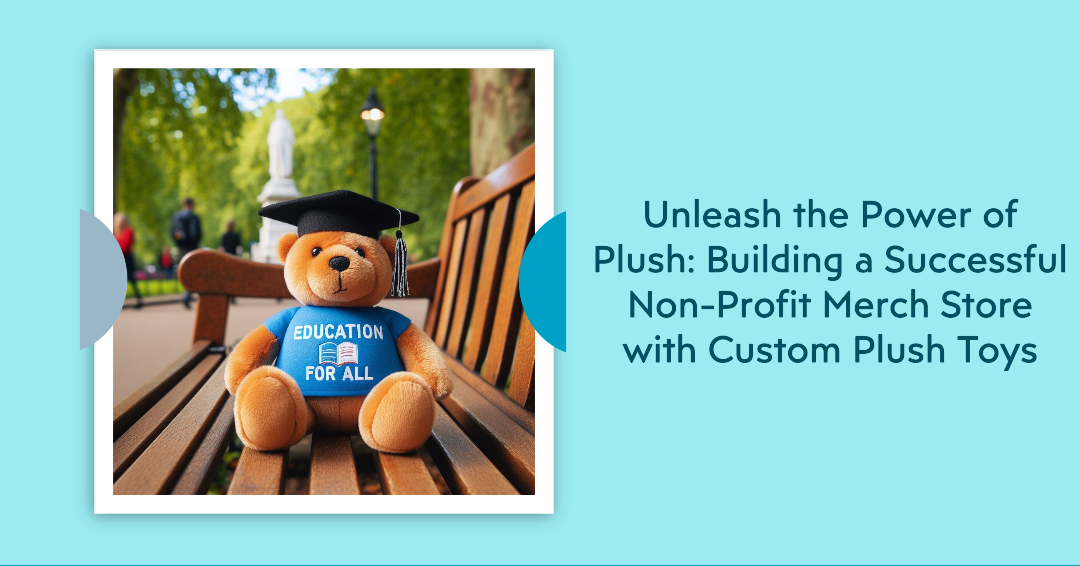
Have you ever witnessed a child's face light up with the joyous embrace of a beloved plush toy? You can harness the same power of connection and comfort for the greater good through the unique world of custom plush toys.
Imagine adorable plush versions of your non-profit's mascot or plush creations embodying your cause's message. These cuddly companions wouldn't just bring joy to individuals, but they could also become powerful tools for fundraising and raising awareness for your organization.
This blog delves into the exciting potential of custom plush toys for non-profits, guiding you through building a successful merchandise store that fosters community engagement, boosts your bottom line, and ultimately supports your mission.
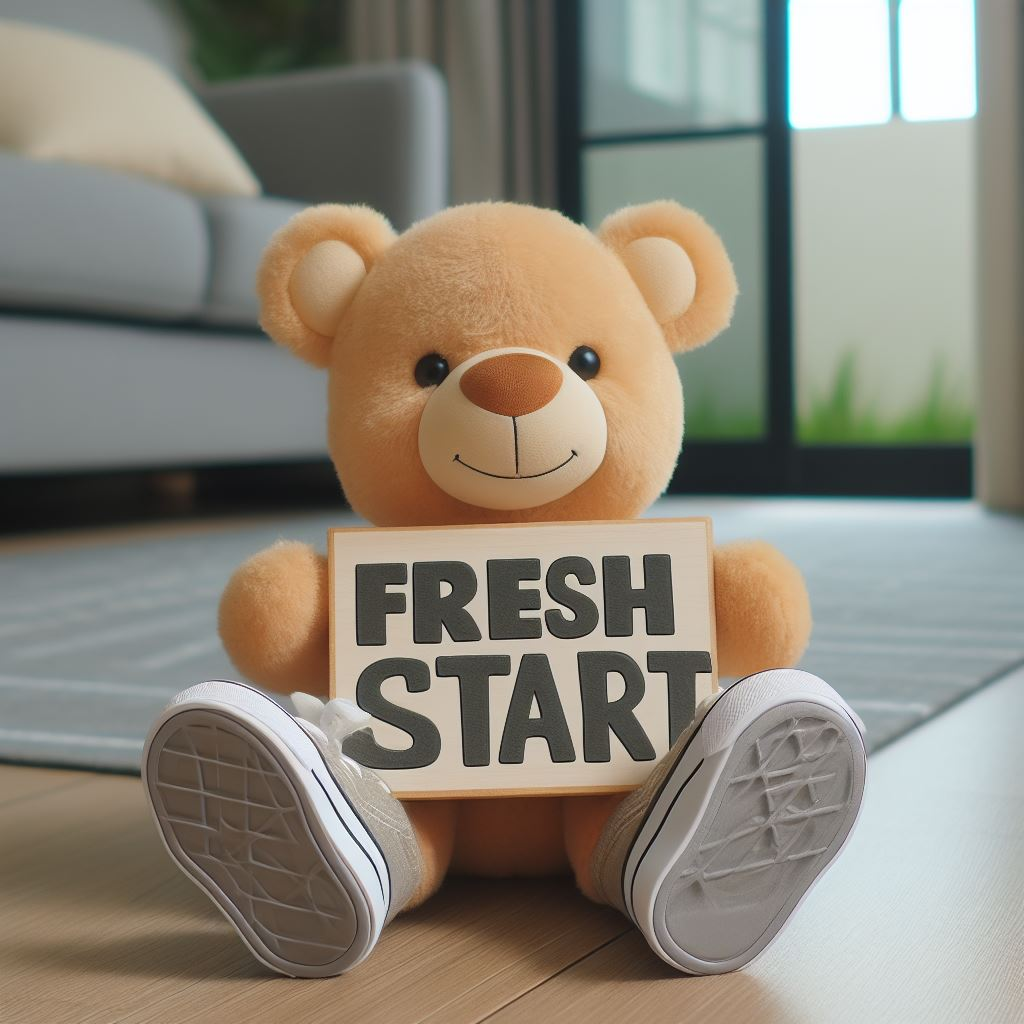
Why Non-profits are vital for change?
Non-profits play a vital role in driving positive change in society for several key reasons:
- Addressing Unmet Needs: Non-profits often fill the gaps left by government and private businesses by tackling crucial social and environmental issues that might not receive sufficient attention or resources. They can address poverty, hunger, homelessness, environmental degradation, education disparities, and healthcare access. It makes a direct impact on the lives of those in need.
- Advocacy and Awareness: Non-profits can help marginalized communities and important causes. They raise public awareness about critical issues, mobilize public support, and influence policy decisions to create lasting change on a larger scale.
- Innovation and Experimentation: Non-profits often operate with greater flexibility and agility compared to larger, bureaucratic organizations. It allows them to innovate and experiment with new approaches to solving social problems. Their success stories can then inspire and inform broader change efforts.
- Building Community and Collaboration: Non-profits act as catalysts for community building and collaboration. They bring individuals, businesses, and other organizations to work towards common goals, fostering a sense of shared responsibility and collective action.
- Holding Power to Account: Non-profits can play a crucial role in holding powerful institutions accountable by monitoring their practices, advocating for transparency, and challenging injustices. They represent the voices of those often unheard.
- Demonstrating the Power of Citizen Action: By successfully addressing social issues and advocating for change, non-profits demonstrate the power of citizen action. They inspire individuals to get involved, contribute their skills and resources, and actively participate for a better future.
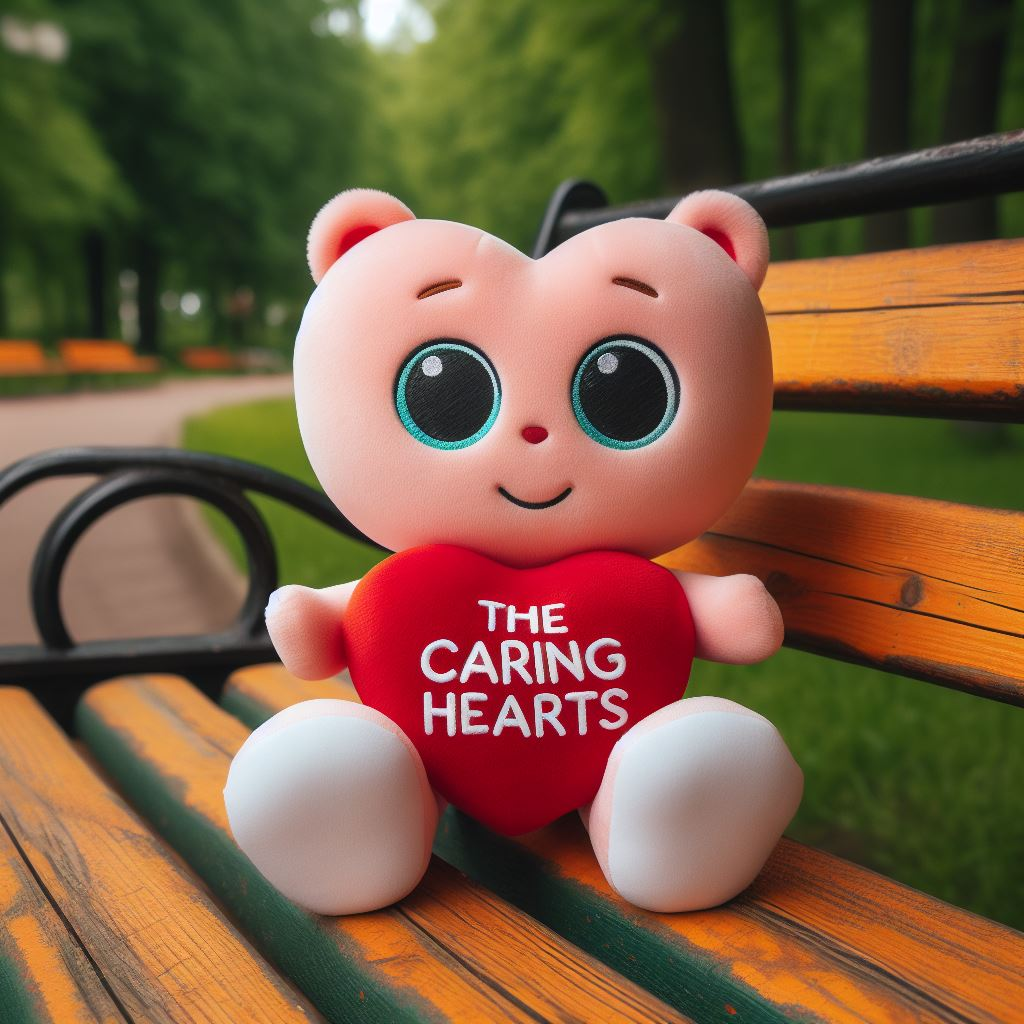
Why do non-profits struggle with money because of solely relying on donations?
While donations are a crucial source of income for non-profits, relying solely on them can lead to several challenges that hinder financial stability and, consequently, their ability to fulfill their missions:
- Unpredictable Income: Donations can be inconsistent and unpredictable, making it difficult for non-profits to forecast their income and plan effectively. This lack of a steady cash flow can create challenges in budgeting for operational costs, staffing, and program implementation.
- Dependence on Individual Donors: Non-profits that solely rely on donations are often heavily dependent on a small number of individual donors. It can make them vulnerable to fluctuations in individual giving or changes in the economic climate. If a primary donor reduces or stops their contributions, it can significantly impact the non-profit's finances.
- Limited Growth Potential: Dependence solely on donations can limit a non-profit's ability to grow and expand its impact. They may struggle to secure funding for new initiatives, invest in infrastructure, or hire additional staff.
- Time and Resource Drain: Fundraising requires significant time and resources. Non-profits must invest in staff, marketing materials, and outreach efforts to secure donations. It can distance them from their core mission and program delivery.
- Limited Diversification: Solely relying on donations creates a single stream, making the non-profit vulnerable to economic downturns or changes in donor behavior. Diversifying income sources, such as earned income ventures, grants, or sponsorships, can provide more stability and resilience.
- Sustainability Concerns: The uncertainty and limitations associated with relying solely on donations can raise concerns about the long-term sustainability of the non-profit organization. It can hinder their ability to attract and retain skilled staff, invest in long-term planning, and ultimately fulfill their mission effectively.
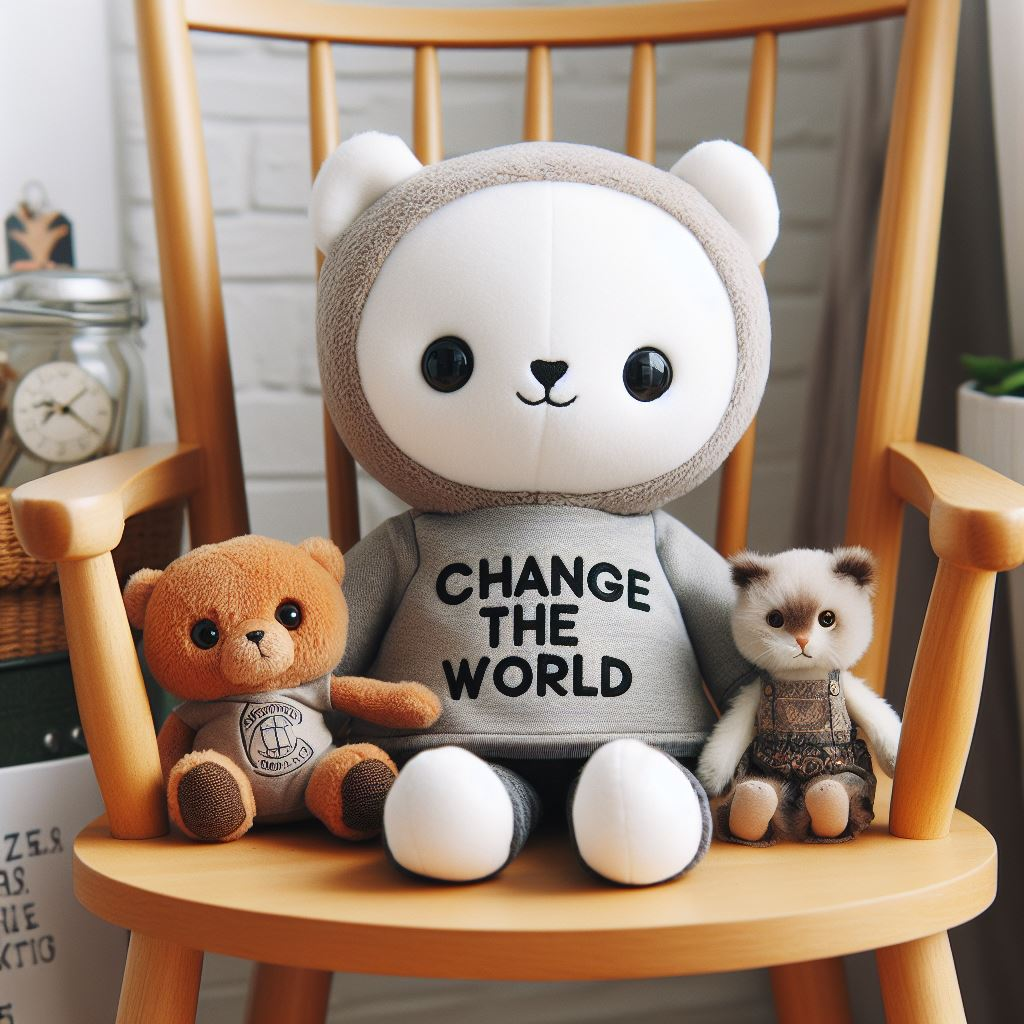
Why Custom Plush Toys Can Be a Game Changer for Non-Profit Merch Stores
While traditional merchandise like t-shirts and hats can be valuable fundraising tools for non-profits, custom plush toys offer a unique and potentially game-changing opportunity to boost your merch store's impact and profitability.
- Broad Appeal:
- Across Age Groups: Unlike apparel with size limitations, custom plush toys appeal to a wide range of ages, from children who find comfort and joy in the cuddly companions to adults who appreciate the unique connection to a cause they support.
- Emotional Connection: Custom plushies evoke a sense of nostalgia, comfort, and emotional connection, creating a lasting positive association with your non-profit.
- Increased Perceived Value:
- Higher Price Point: Compared to traditional merchandise like t-shirts, you can competitively price custom plush toys while offering a higher perceived value. It allows you to generate more profit per item sold, directly impacting your fundraising efforts.
- Collectible and Memorable: Their unique and personalized nature makes them coveted collectibles and meaningful mementos for supporters, potentially fetching higher prices and further increasing profitability.
- Enhanced Brand Awareness and Storytelling:
- Walking Advertisement: Custom plush toys act as walking advertisements for your non-profit, raising brand awareness and promoting your cause wherever they go.
- Creative Storytelling: Custom plush toys offer a unique platform for storytelling. You can design them to embody your mascot, represent your mission visually, or even tell a story through their appearance, fostering deeper connections with potential donors.
- Increased Engagement and Community Building:
- Conversation Starters: Custom plushies can be conversation starters, sparking discussions about your non-profit's work and mission with a broader audience.
- Sense of Community: Owning custom stuffed toys can create a sense of belonging and shared purpose among supporters, fostering a stronger connection to your organization and its cause.
- Additional Revenue Streams:
- Seasonal or Limited Edition Designs: Offer seasonal or limited-edition custom plushies to create a sense of urgency and exclusivity, potentially generating additional revenue and attracting new supporters.
- Wholesale Opportunities: Consider partnering with local businesses or other organizations to sell your custom plush toys wholesale, expanding your reach and generating additional income streams.
|
Feature |
Custom Plush Toys |
T-Shirts |
Hats |
Custom Basketballs |
|
Appeal |
Wide age range (children, adults) |
Primarily adults |
Primarily adults |
Sports fans, specific demographics |
|
Perceived Value |
High, often seen as collectibles |
Moderate |
Moderate |
High, collectible and functional |
|
Brand Awareness |
Walking advertisement, logo and colors prominent |
Logo and message displayed |
Logo and message displayed |
Logo and message displayed prominently |
|
Storytelling Potential |
Embodiment of mascot, mission, or message |
Limited |
Limited |
Limited |
|
Emotional Connection |
Comforting, creates a bond with the cause |
Can evoke positive feelings |
Can evoke positive feelings |
Can evoke team spirit and excitement |
|
Customization Options |
Extensive (design, size, materials) |
Moderate (color, design) |
Moderate (color, design) |
Moderate (logo placement, color) |
|
Uniqueness |
Highly unique and memorable |
Common, many non-profits offer similar designs |
Common, many non-profits offer similar designs |
Relatively unique, potential for niche appeal |
|
Profit Margin |
Potentially higher due to perceived value |
Moderate |
Moderate |
Moderate |
|
Seasonal/Limited Edition Potential |
High, can generate excitement and urgency |
Moderate |
Moderate |
Moderate |
|
Initial Investment |
May be higher due to minimum order quantities |
Relatively low |
Relatively low |
Moderate |
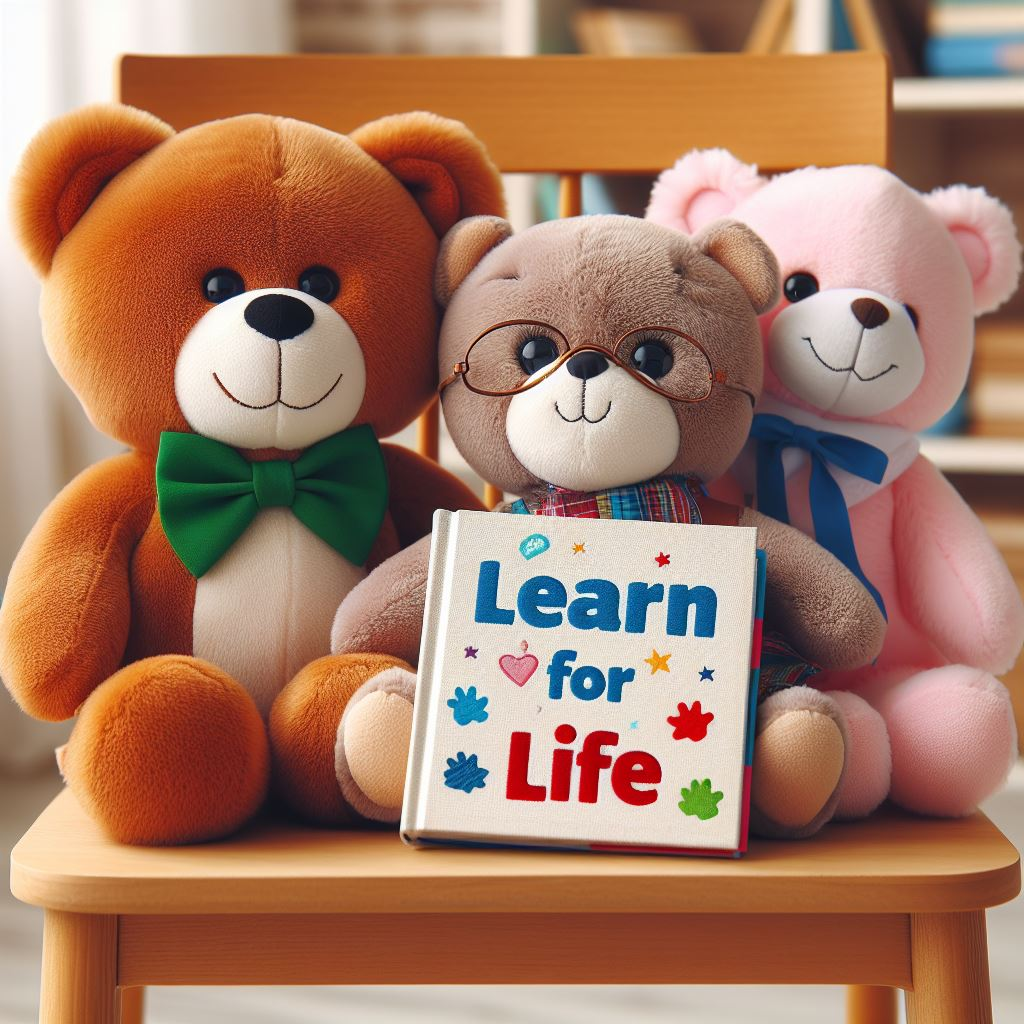
A few real-world examples of non-profits using custom plushies
- The National Audubon Society: This organization, dedicated to bird conservation, offers several adorable plush versions of various bird species through their online store and gift shops. These stuffed toys raise funds for their conservation efforts and serve as educational tools for children, fostering appreciation for nature and birdlife.
- The World Wildlife Fund (WWF): WWF offers a collection of plush toys representing endangered or threatened animals like pandas, tigers, and elephants. These cuddly companions raise awareness about the species' plight and generate funds to support WWF's conservation initiatives worldwide.
- The American Red Cross: During various seasons and holidays, the Red Cross offers limited-edition stuffed toys, often featuring their iconic mascot, "Bloodhound." These adorable companions raise awareness about blood donation and generate funds to support their life-saving work.
- The Make-A-Wish Foundation: This organization, dedicated to fulfilling the wishes of children with critical illnesses, offers custom teddy bears to each wished child. These personalized plush toys become cherished companions for the children, offering comfort and a tangible reminder of their wish coming true.
- Local Non-Profits: Many local non-profits, animal shelters, and community organizations are increasingly utilizing custom plushies to raise funds and awareness for their specific causes. These often feature mascots or local landmarks, creating a unique connection with the community and fostering local support.
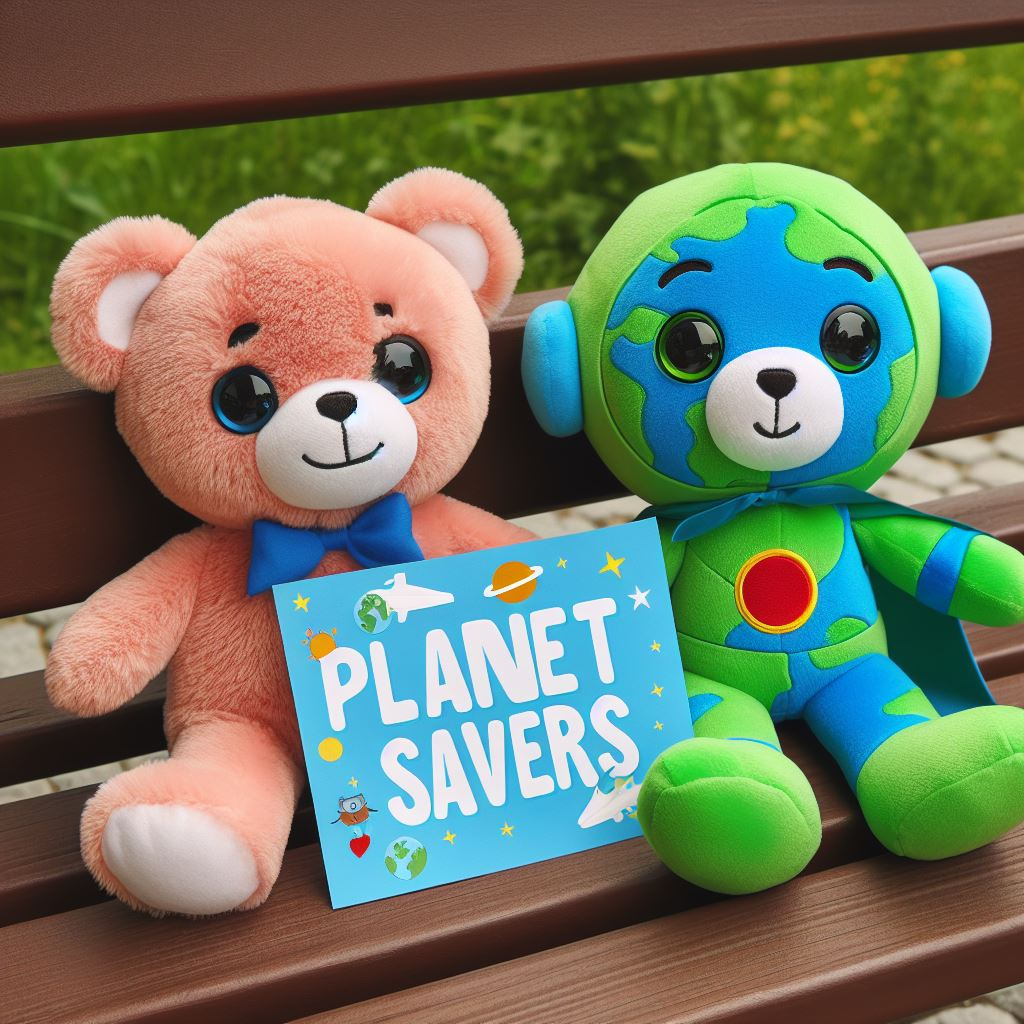
Bringing Your Vision to Life: How Non-Profits Can Create Custom Plush Toys
Custom plush toys hold immense potential to boost non-profit fundraising and brand awareness. But how do you translate your vision into these cuddly companions?
- Define Your Goals and Budget:
- Start with a clear purpose. What do you hope to achieve through custom plush toys? Is it raising funds, increasing brand awareness, or promoting a specific message?
- Develop a realistic budget. Determine how much you can comfortably invest in design, production, and minimum order quantities (MOQs).
- Design and Development:
- Brainstorm and sketch ideas. Consider your mascot, logo, or a design that embodies your mission visually.
- Choose a reputable supplier. Research and compare different custom plushie manufacturers, focusing on quality, experience, minimum order quantities, and pricing.
- Work with the supplier's design team. They can help refine your design, ensure technical feasibility, and recommend materials for optimal results.
- Production Process and Considerations:
- Understand the production process. Custom plush toy creation typically involves sampling, material selection, pattern creation, cutting, sewing, stuffing, and finishing.
- Minimum Order Quantities (MOQs). Most manufacturers have minimum order requirements, so ensure production aligns with your budget and needs.
- Safety standards. Ensure the supplier adheres to strict safety standards if your target audience includes children.
- Marketing and Promotion:
- Develop a compelling marketing strategy. Showcase your custom stuffed toys through various channels, like your website, social media, and fundraising events.
- Highlight the impact. Communicate how the proceeds from the custom plushies sales contribute to your mission and support your cause.
- Offer unique options. Consider offering personalized options or limited-edition designs to boost demand and excitement.
Additional Tips:
- Seek inspiration from other non-profits. Research how organizations utilize custom merchandise and draw inspiration for your campaign.
- Read online reviews and testimonials. Before finalizing a supplier, check online reviews and testimonials to gauge their reputation and customer service.
- Get samples before bulk production. Request samples to ensure the final product meets your quality expectations and aligns with your initial vision.
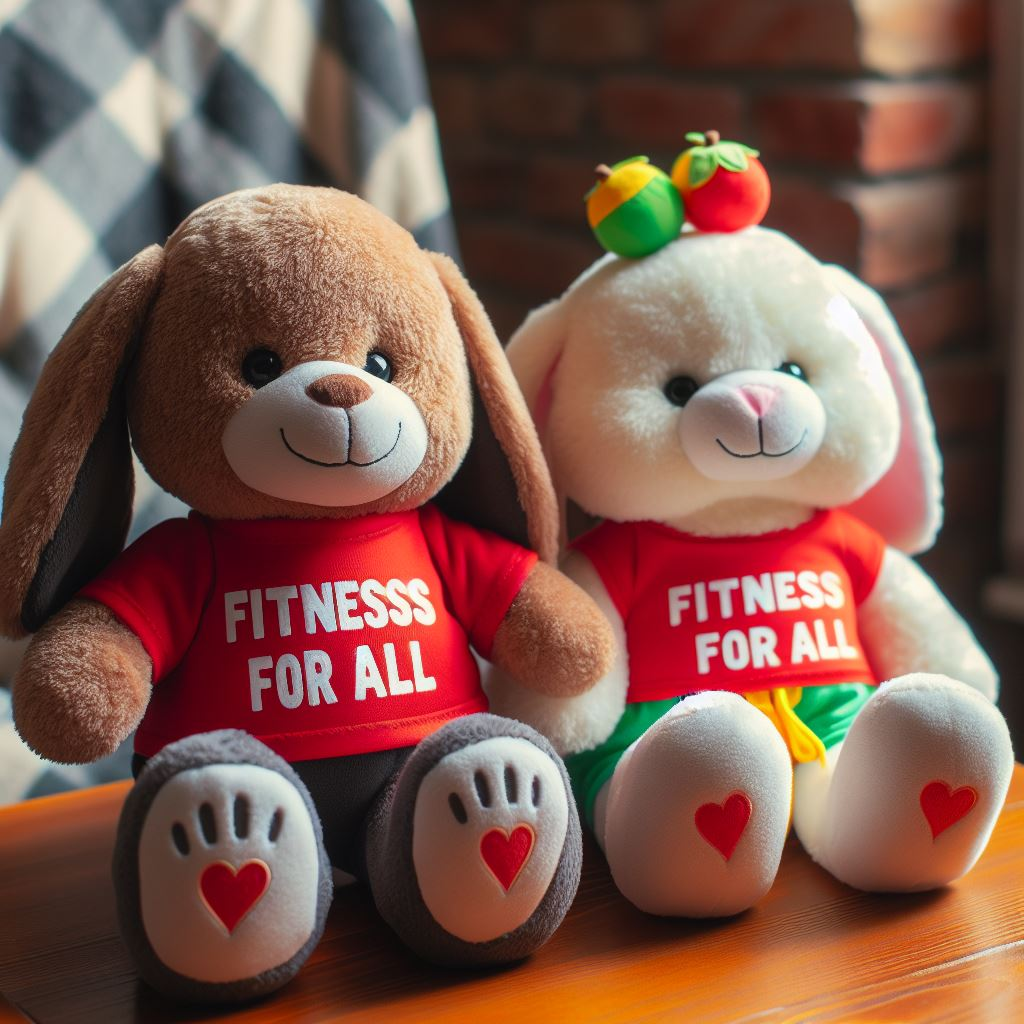
How do you balance cost, branding, and quality to maximize profits from custom plush toys for non-profits?
Striking the right balance between cost, branding, and quality when creating custom plushies for non-profits is crucial to maximizing profits and achieving your fundraising goals. Navigate this delicate balance with these tips:
Cost:
- Negotiate with suppliers: Don't be afraid to negotiate with various suppliers to get the best possible price per unit, especially if ordering in larger quantities.
- Consider material choices: Explore alternative materials that offer good quality while maintaining affordability. However, prioritize safety and durability over excessively cheap materials that could compromise the custom plush toy's longevity or safety standards.
- Minimize waste: Work closely with the supplier to optimize the design and minimize any potential fabric waste during production. It reduces costs: this also promotes sustainable practices.
Branding:
- Incorporate your logo and colors: Ensure your logo and branding elements are easily visible on the custom plush toy. It reinforces brand recognition and strengthens the connection between the toy and your organization.
- Design with your target audience in mind: Consider the age group and interests when designing the custom plushies. It will influence the design elements, color schemes, and overall appeal, ultimately increasing the product's desirability and sales potential.
- Offer customization options (optional): Consider offering personalization options like embroidery or name tags at an additional cost. It can enhance the perceived value and exclusivity of the custom plush toys, potentially increasing profit margins.
Quality:
- Prioritize safety certifications: Ensure the manufacturer follows strict safety standards and certifications. It builds trust with supporters and avoids any potential safety concerns.
- Choose durable materials: Opt for soft, cuddly materials that can withstand frequent use. It ensures the custom plushies last longer, provide value to supporters, and potentially reduce replacement costs.
- Request samples: Before placing a large order, request physical samples to assess the quality of the materials, stitching, and overall construction. It allows for adjustments or refinements before mass production, ensuring a high-quality final product.
Maximizing Profits:
- Set the right price: Conduct market research to determine a competitive price point that balances fair pricing for supporters with maximizing profit per unit sold.
- Promote effectively: Utilize various marketing channels to showcase your custom plush toys and their connection to your non-profit's mission. It can involve social media campaigns, email marketing, and collaborations with local businesses.
- Limited edition or seasonal designs (optional): Consider creating limited-edition or seasonal designs to generate excitement and encourage impulse purchases, potentially increasing profitability.
Remember:
- Transparency is key. Communicate how the proceeds from the custom plushies contribute to your mission and support your cause. It fosters trust and incentivizes supporters to purchase the product, knowing it directly benefits your organization's work.
- Finding the right balance between cost, branding, and quality requires careful consideration of your budget, target audience, and overall mission. By prioritizing quality and safety while remaining cost-conscious and creatively promoting your brand, you can create successful custom plush toys that contribute to fundraising and brand awareness for your non-profit.
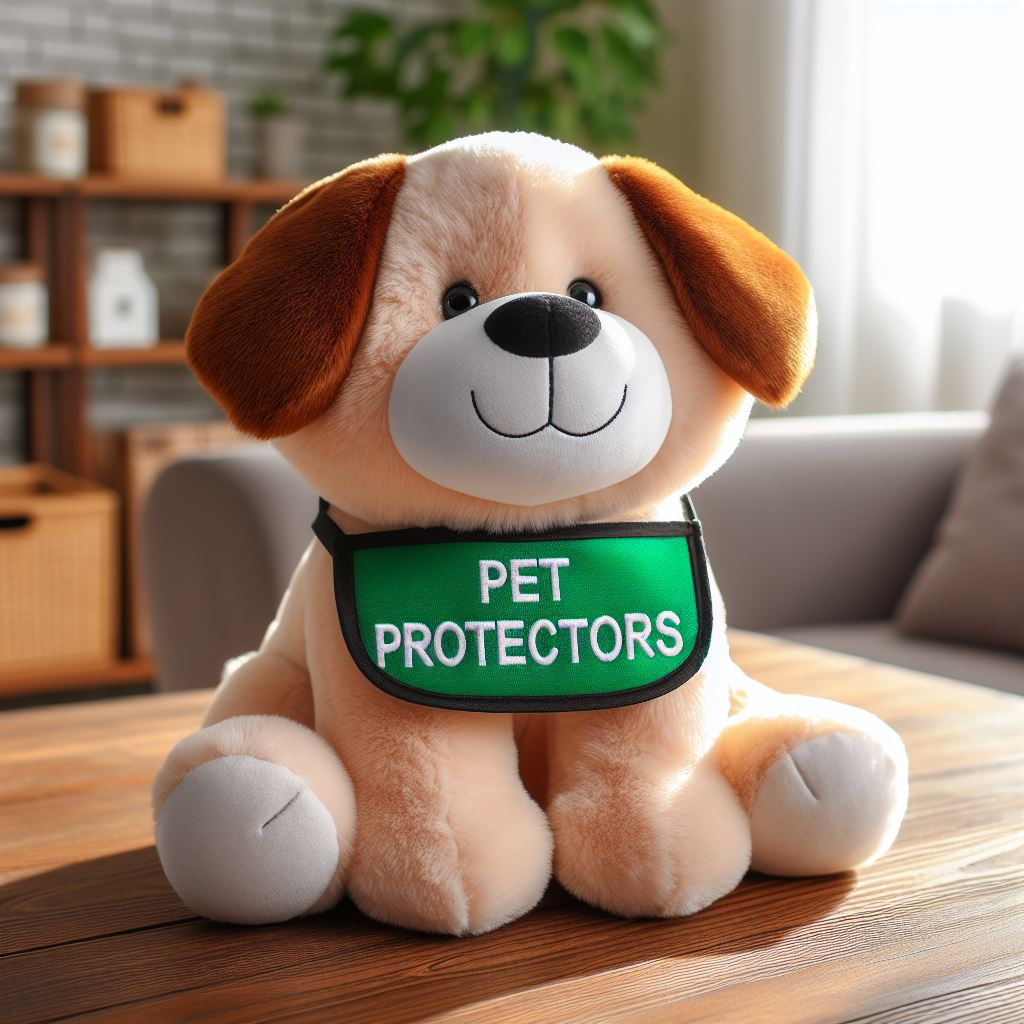
Selling, Promoting, and Distributing Custom Plush Toys for Non-Profits:
Custom plush toys offer a unique and heartwarming way for non-profits to raise funds and awareness for their causes. However, effectively selling, promoting, and distributing them requires careful planning and execution.
Selling:
- Set a competitive price: Conduct market research to determine a fair price that balances profitability and affordability for your target audience. Consider offering tiered pricing for different sizes or variations of the custom plushies.
- Partner with local businesses: Collaborate with local stores, gift shops, or toy stores to sell your custom plushies in their physical locations. It expands your reach and provides additional sales channels.
- Offer online sales: Set up an e-commerce platform on your non-profit's website or utilize online marketplaces like Etsy to offer nationwide or global sales opportunities.
- Special promotions and incentives: Consider offering discounts or bundled deals during specific periods or holidays. You can also incentivize bulk purchases by offering reduced prices or additional benefits.
Promoting:
- Storytelling through social media: Utilize engaging storytelling on social media platforms like Facebook, Instagram, and TikTok to showcase the custom plushies, highlight your mission, and connect with potential buyers emotionally.
- Influencer marketing: Partner with relevant influencers who align with your mission to reach a wider audience and promote your custom plush toys through their channels.
- Press releases and media outreach: Issue press releases and reach out to local media outlets to generate publicity for your custom plush toys and the cause they support.
- Public events and fundraising campaigns: Include your custom stuffed toys as part of your fundraising events like charity walks, auctions, or awareness campaigns to increase sales and visibility.
Distributing:
- Fulfillment options: Depending on your sales volume, you might consider fulfilling orders yourself or utilizing a fulfillment service to handle packaging, shipping, and customer service.
- Shipping options: Offer various shipping options at different price points to cater to different customer preferences and budgets. Consider offering free shipping above a specific order value to incentivize larger purchases.
- Inventory management: Implement a system for managing inventory effectively to avoid stockouts or overstocking, ensuring smooth order fulfillment and preventing financial losses.
Additional Tips:
- Offer free shipping promotions strategically.
- Create high-quality product photos and videos for online listings.
- Provide impeccable customer service to build trust and repeat purchases.
- Gather feedback from supporters to improve your custom plushies design and marketing strategies.
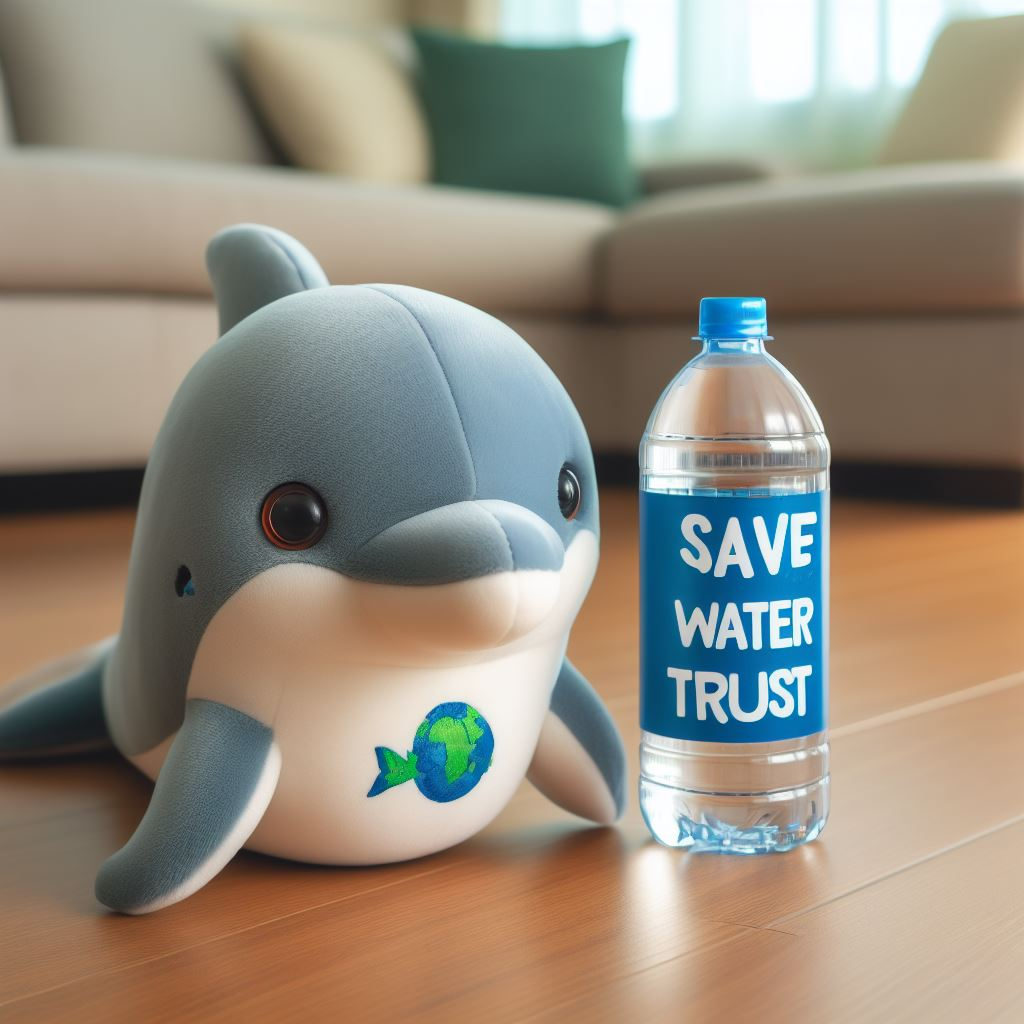
Unleash the Power of Custom Plushies
Custom plush toys offer a potent and heartwarming way for non-profits to engage supporters, raise funds, and amplify their missions. With the strategies outlined in this blog, you can transform these cuddly companions into influential fundraising tools that leave a lasting impact.
Ready to embark on this exciting journey? Look no further than EverLighten! We are a dedicated partner in your mission success, offering:
- 100% Customization: Design your dream plush, from concept to creation, with complete creative freedom.
- 100% Quality Check: Meticulous inspections ensure your plush toys are flawless and ready to bring joy.
- Free Design Help: Our experienced team assists you in translating your vision into a stunning reality.
- Worldwide Delivery: We deliver custom plush toys globally to your doorstep.
- 24/7 Support: Our customer success team addresses your questions or concerns round the clock.
- Unlimited Revisions: We want you to be 100% satisfied; we offer revisions until your plush is perfect.
- Low MOQ: Get started with smaller quantities, ideal for testing out designs or personalizing a single plush.
Don't wait! Contact EverLighten today for a free quote and discover the joy of creating custom plush toys that embrace your cause and make a lasting difference.
Let's turn your vision into reality and make the world brighter, one plush toy at a time!
FAQs:
- What are the benefits of using custom plush toys for non-profits?
Custom plush toys offer several benefits for non-profits, including:
- Broad appeal: They resonate with a wide age range, from children who find comfort to adults who appreciate the connection to a cause.
- Increased perceived value: Compared to traditional merchandise, plush toys can be priced competitively with a higher perceived value, potentially increasing profit per item sold.
- Enhanced brand awareness and storytelling: They act as walking advertisements, raise brand awareness, and offer unique storytelling opportunities for your cause.
- Increased engagement and community building: Custom plushies can spark conversations, create a sense of belonging, and foster a stronger connection with your organization.
- How much does it cost to create custom plush toys?
The cost of custom plush toys depends on several factors, including:
- Design complexity: Simpler designs generally cost less than intricate ones.
- Material choices: Different materials have varying costs.
- Quantity ordered: Larger quantities typically benefit from economies of scale and lower per-unit costs.
Many suppliers offer free quotes, allowing you to compare pricing based on your specific needs and budget.
- Can I get help with designing my custom plush toy?
Absolutely! Many reputable suppliers offer free design assistance. They can help you refine your ideas, ensure technical feasibility, and recommend materials for optimal results.
- What is the minimum order quantity (MOQ) for custom plush toys?
MOQ is the minimum number of units to order. It varies between suppliers, but many offer low MOQs catering to non-profits and smaller businesses.
- How can I ensure the quality and safety of my custom plush toys?
Choose a supplier that adheres to strict safety standards. It becomes more vital if your target audience includes children. Look for certifications and inquire about their quality control procedures. Samples before bulk production allow you to assess the quality firsthand.
